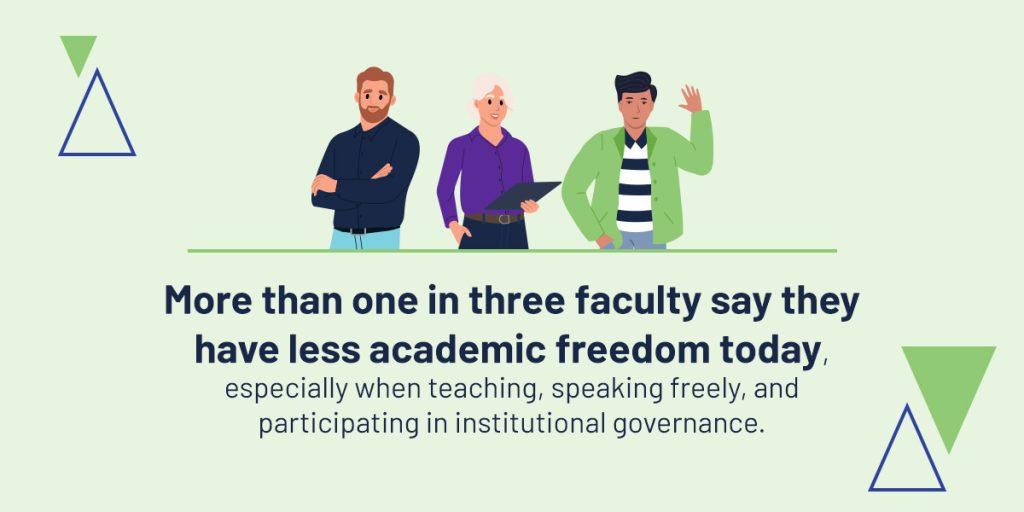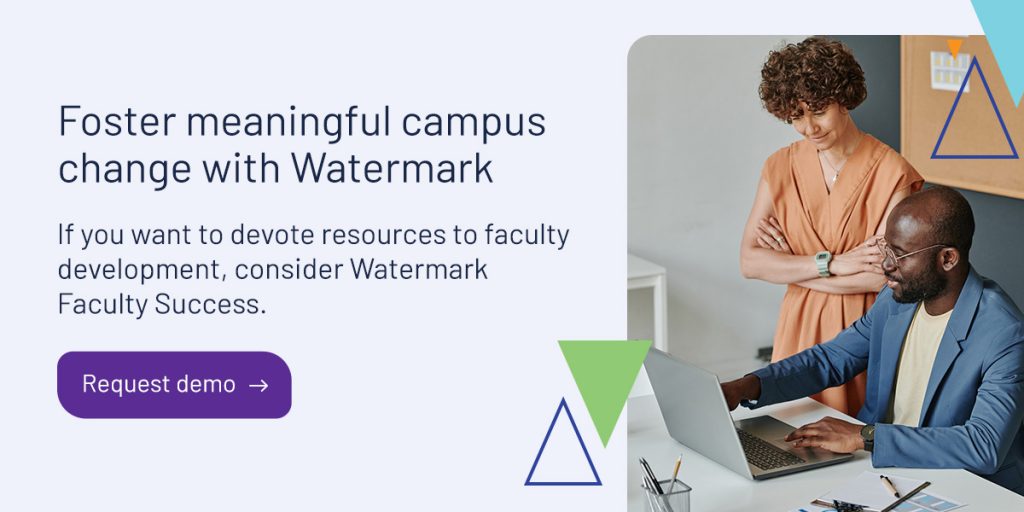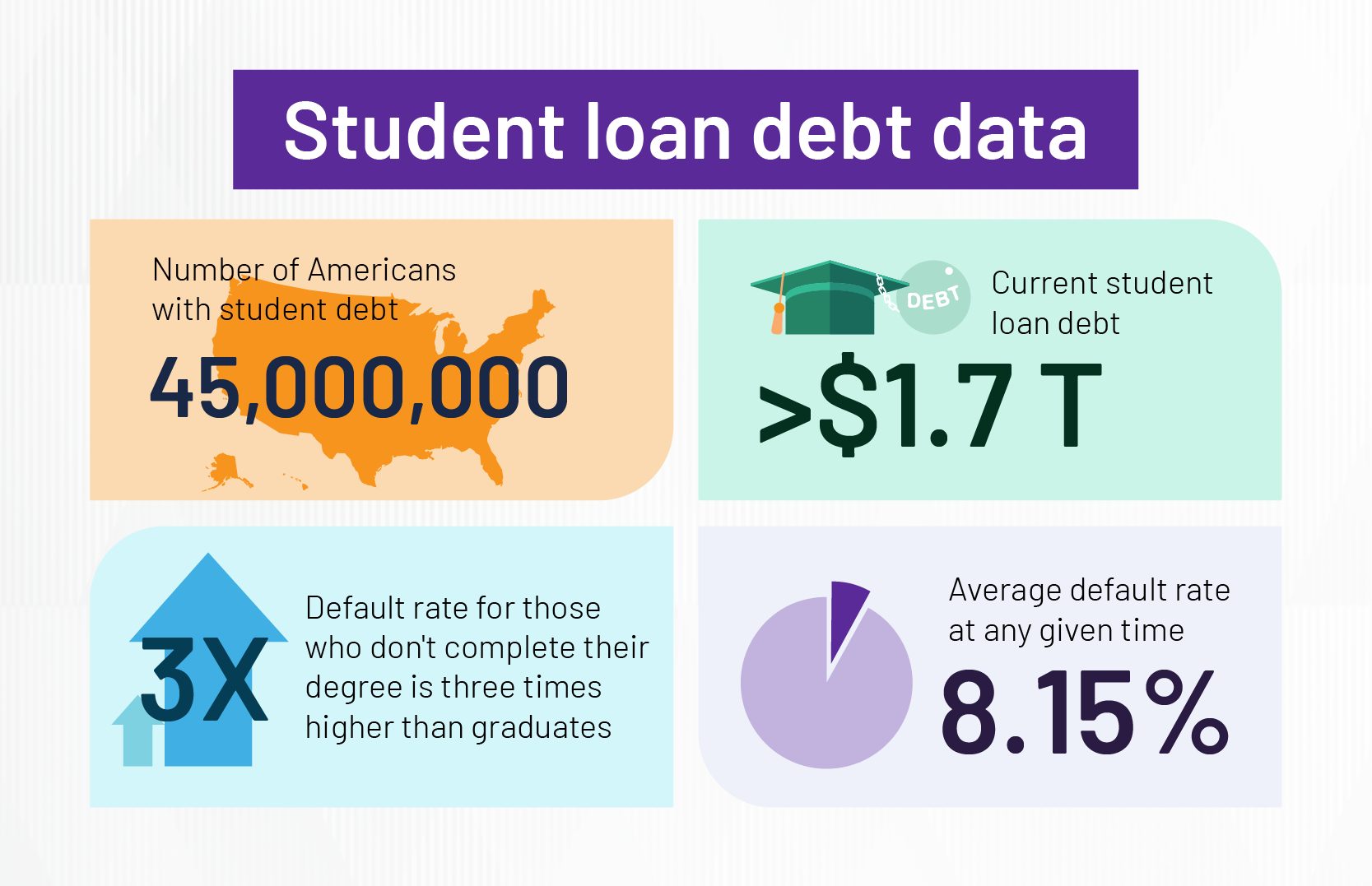
Academic freedom is the foundation of higher education success. It ensures that college faculty can innovate and pass on their knowledge to future generations. It promotes innovation and allows everyone in academia to learn about different perspectives. However, many faculty members worry about sharing their views.
Some faculty have faced retaliation for attending protests and speaking on controversial issues in their classes, and 53 percent believe that their work would make them targets for online harassment. Students often emulate faculty, which means they will self-censor as well. Higher education institutions are understandably concerned about the challenges that self-censorship creates. However, cohesion and development are possible with the right approach.
The importance of faculty cohesion and development
Faculty cohesion and development are integral to student and institutional success. A strategy that encourages faculty professional development and teamwork removes some of the uncertainty they face in today’s landscape. Similarly, a cohesive faculty adds support and collaboration to their daily activities. It reminds them that they aren’t facing challenges alone, and the whole institution benefits.
Some of the many benefits of faculty development and cohesion include:
- Improved teaching quality: A cohesive faculty that prioritizes professional development is more focused and capable of providing the highest-quality student experience. Faculty development programs result in more engaged academic staff, which filters down to their students.
- Enhanced understanding of student needs: Cohesive faculties collaborate. They proactively engage in their professional development, communicate, and share information. A collaborative environment often leads to a better understanding of students and their needs as faculty share and discuss their observations.
- Engaged and enthusiastic teams: Cohesive teams are naturally more involved in every aspect of campus life. They’re comfortable in their roles and willing to dedicate more to institutional goals.
- Increased retention: Faculty cohesion and development increases job satisfaction and provides a sense of belonging. Faculty who feel part of a cohesive unit are less likely to move to other institutions.
Defining academic freedom
Academic freedom is the freedom students and faculty enjoy — freedom of speech and the opportunity to voice their opinions without fear or sanction. Since the medieval era, higher education institutions have been self-governing, meaning they regulate without fear of government repercussions. This fundamental tenet of modern academia allows students and faculty to thrive. It’s vital for success in higher education and plays a role in shaping tomorrow’s society. Some of the principles of academic freedom include:
- Teaching and discussing a diverse range of topics
- Carrying out research and publishing results
- Expressing opinions freely, including those about the institution and academic system
- Participating in professional development programs and representative academic bodies
While faculty’s freedom to speak their minds on chosen topics remains robust, many are worried. In a recent survey, more than half of faculty reported being concerned about losing their jobs or reputation due to misunderstandings or lack of context over something they’ve said or done. While academic freedom always has limitations, institutions can take steps to put faculty’s minds at rest through professional development and cohesion.
Understanding current trends in the educational landscape

Amid the uncertain political and academic climate, the educational landscape is changing. More than one in three faculty say they have less academic freedom today, especially when teaching, speaking freely, and participating in institutional governance. Many higher education institutions are more likely to avoid controversial topics today than in the past. Professors from different backgrounds and political standpoints have the same concerns about speaking freely.
Faculty often avoid mentioning globally and nationally divisive events and are less willing to express what they believe to be correct statements. Faculty are also grappling with potential legislation restricting their speech and action in the classroom. Should the legislation pass, faculty must monitor topics discussed in class, including gender identity and sexual orientation.
Academic freedom is evolving. Faculty face ongoing challenges to balance institutional policies with individual freedoms. As the concept of academic freedom continues to be challenged and redefined, cohesion and professional development become all the more vital.
Navigating the complexities of cohesion amid uncertainty
Uncertainty can impede faculty development. Many higher education institutions are taking steps to overcome self-censorship, provide students with diverse perspectives, and preserve academic freedom. Some steps they can take to achieve these goals include:
Embrace vulnerability
When faculty and leaders feel comfortable being vulnerable, the results can be transformative. Faculty can think about how they are at work compared to their home selves. Most people are more relaxed and uncensored at home, and faculty can try to emulate this state of mind in class. Use that relaxation to have honest conversations. Open, authentic discussions enhance cohesiveness, and faculty feel more comfortable sharing issues and ideas.
Work on building relationships
When faculty members become vulnerable and communicate with each other, they connect on more meaningful levels. Encourage faculty to build these relationships through events, workshops, and other collaboration opportunities. Create a positive and productive academic environment with the following strategies:
- Foster open and transparent communication.
- Create safe spaces for faculty to discuss their concerns, like anonymous feedback systems.
- Provide faculty development training in communication, equipping them with the tools to handle disputes.
- Develop clear conflict resolution processes.
- Provide support systems for faculty, including counseling services and stress management programs
- Gather feedback regularly, allowing faculty to share their experiences, concerns, and improvement suggestions.
Support diverse research and teaching
Outline transparent and integrated curricula for each program to help faculty focus on achieving student outcomes. Allow them to direct change, identify gaps, and adapt their programs in real time to meet student needs. Take proactive steps to integrate culturally responsive and varied classes.
Implement a robust faculty development program
Faculty development programs equip your faculty with the necessary skills, benefit students, and promote cohesion. Workshops, seminars, and other training opportunities make a significant and lasting impact on teaching and faculty confidence. Faculty members also benefit from having a mentor. It creates connections, streamlines complex instructional issues, and helps with curriculum mapping.
Recognize each faculty member’s achievements and use a faculty activity reporting system. These diverse tools enhance faculty development, aligning with the institutional mission to recruit, retain, and bring out the best in faculty. Faculty data is essential for advancing faculty careers and promoting cohesion. They allow you to share accomplishments, facilitate reviews, promote faculty development, and gather insights across campus.
Foster meaningful campus change with Watermark
With cohesion and development at the top of your mind, seeking ways to boost faculty engagement and satisfaction is natural. If you want to devote resources to faculty development, consider Watermark Faculty Success — a single location for all your faculty activity data. Get deeper insights, support careers, and learn more about what they need to succeed. Capture a holistic picture and minimize administrative burdens, allowing your faculty to thrive.
Watermark Faculty Success is one element of our Educational Impact Suite (EIS). The EIS is a complete suite of complementary solutions that allow you to collect, synthesize, and analyze your data for better visibility. Book a demo online and create a more cohesive faculty today!

































































































































































































































































































































































































